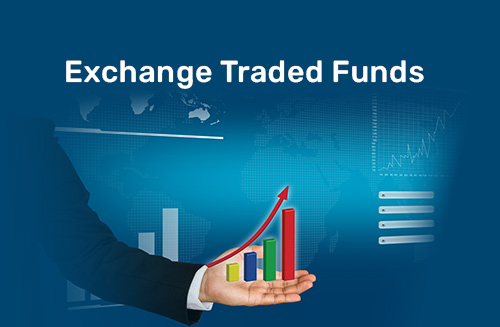Are you looking to get the most out of your investments? With financial markets constantly changing and developing, it can take much work to keep up with what investment trends are worth considering. But don't worry! In this blog post, we'll give an overview of some popular investment strategies that can help guide your decision-making to get the best returns on your money.
We'll cover everything from stocks and bonds to alternative investments like cryptocurrency. So if you're curious about what types investments are worth adding to your portfolio in 2021, read on for our expert tips and insider advice!
Top 10 Investing Trends For Current
America Remains an Inflation Nation
Inflation is a fact of life in the United States, and while it typically doesn't rise too steeply from year to year, America remains an inflation nation. In 2018 and 2019, for example, inflation rose 2.3 percent and 1.9 percent, respectively,ely - numbers considered relatively mild by historical standards. Any person or family looking to invest should consider the potential impact of inflation on their investments.
For example, investing a large sum of money into an account that only provides returns at the inflation rate - or lower - could mean that your money is slowly losing its value over time. This is why it's important to identify investment options that will outpace inflation and provide you with greater returns in the long run.
Investing in Real Estate
Real estate investing is a popular and proven option for building wealth over time and protecting against inflation. With real estate, you can buy into physical properties - like houses, condos, or commercial buildings - which have the potential to appreciate over time. You can also invest in real estate-related securities like REITs and other funds, providing you with dividend income and the potential for price appreciation.
Real estate investing is also a great way to diversify your portfolio since it doesn't rely on stock market performance or fluctuate much with the ups and downs of the economy. But make sure you research local markets and rental rates before investing in real estate to ensure you're getting the most out of your investment.
Investing in Developing Markets
Developing markets offer unique opportunities for investors, as they tend to have higher growth potential than more established economies. By investing in developing economies, you can get better returns while also helping to support new and emerging businesses that bring positive change to the community.
Just be sure to research the local market and economy before investing to ensure you understand all the risks associated with investing in developing markets.
Investing in Precious Metals
Precious metals, such as gold and silver, have long been considered reliable to protect against inflation. In addition to their potential to appreciate, precious metals can also provide a hedge against currency devaluation.
Just be aware that investing in precious metals can come with risks, such as market volatility and large transaction costs when buying and selling. So if you decide to invest in precious metals, ensure you understand the risks and costs associated with buying and selling before investing.
Investing in Cryptocurrency
Cryptocurrency is a relatively new form of digital currency, but it has quickly become a popular investment for those looking to diversify their portfolios. Cryptocurrencies are not regulated by any central bank or government, so that they can be much more volatile than traditional investments. Understanding the risks involved before investing in cryptocurrency is important, as you may be exposed to losses if the market shifts suddenly.
That said, cryptocurrencies can also provide investors with opportunities for potentially high returns - especially if you invest early in a currency that catches on and grows quickly. So if you're willing to take on the associated risks, cryptocurrency can be another great option for diversifying your portfolio.
Investing in Startups
Investing in startup companies can be a great way to get in on the ground floor of an up-and-coming business and potentially reap large rewards if the company succeeds. But it's important to understand that investing in startups is extremely risky, as many fail before they become successful.
With the right team and resources, a startup can become the next big thing in tech. So if you're willing to take the risk, consider investing in startups as part of your portfolio diversification strategy.
Investing in Exchange-Traded Funds
Exchange-traded funds (ETFs) are a type of investment fund that hold assets such as stocks, bonds, or commodities and are traded on exchanges like a stock. ETFs offer investors a way to diversify their portfolios with investments that have lower fees than traditional mutual funds.
ETFs are typically used for long-term investment strategies since they can be more tax efficient and provide better returns over the long run. Because ETFs track an index, you can easily invest in various sectors without researching individual stocks.
Investing in Foreign Exchange
Foreign exchange (Forex) is the trading of one currency for another and can allow investors to capitalize on international price disparities. While it comes with certain risks, it can also be a great way to diversify your portfolio and benefit from the changing exchange rates.
Just be sure to research before investing in Forex, as it is a very complex market with many risks. It's also important to find a trusted broker offering competitive rates to get the most out of your investments.
Investing in Commodities
Commodity investing involves buying and selling physical commodities such as oil, gold, or agricultural products, expecting their prices to rise over time. Commodities can provide investors a way to hedge against inflation or diversify their portfolios, but they also come with certain risks - like market volatility and price fluctuations due to supply and demand.
So if you decide to invest in commodities, understand the associated risks before investing. You should also research which commodities may be a good fit for your portfolio and which ones to avoid to maximize your investments.
Investing in Index Funds
Index funds are a type of investment fund that tracks the performance of a specific market index, like the S&P 500 or Dow Jones Industrial Average. Investing in an index fund can easily diversify your portfolio without researching individual stocks and bonds.
Plus, since index funds tend to have lower fees and are more tax efficient, they can be a great way to get better returns over the long run. But ensure you understand all the risks associated with investing in index funds before adding them to your portfolio.
FAQs
How do I know which investments are right for me?
The best way to determine which investments are right for you is to assess your goals and risk tolerance. Once you understand what you're trying to achieve, you can research different investment options and decide which ones make the most sense for your situation.
How much money do I need to start investing?
The money needed to start investing will depend on your goals and risk tolerance. Many investments don't require a large upfront cost, so that you can start with just a few hundred dollars. That said, it's important to understand that certain risks are involved with investing, so do your research and understand all the potential risks before getting started.
Does investing in stocks involve a lot of risk?
Yes, investing in stocks does involve some level of risk. But with proper research and a diversified portfolio, you can minimize your risk exposure while aiming for higher returns over time. Understanding the associated risks before investing is important and working with a trusted financial advisor to help proceed.
Conclusion
No matter what your individual goals and risk tolerance are, a variety of investment strategies are available to help you get the most out of your money. By researching different options and understanding the associated risks, you can make informed decisions about which investments to include in your portfolio to achieve better returns over time.




